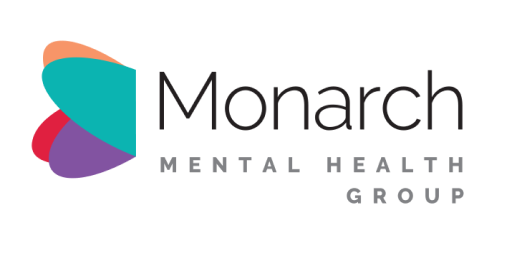Effective OCD Treatment - Australia
Understanding and Treating Obsessive-Compulsive Disorder (OCD)
Obsessive-Compulsive Disorder (OCD) is an anxiety disorder affecting 2-3% of the population, including over 500,000 Australians. OCD typically begins in late childhood or early adolescence. Individuals with OCD experience recurrent, persistent thoughts, images, or impulses that are intrusive and unwanted (obsessions).
They also engage in repetitive and ritualistic actions that are excessive, time-consuming and distressing (compulsions). Although those with OCD are generally aware of the irrational and excessive nature of their obsessions and compulsions, they often feel unable to control them. OCD treatment in Australia involves various approaches to help manage and reduce these symptoms effectively.
Symptoms of OCD
Obsessive Compulsive Disorder (OCD) is a serious and debilitating condition where individuals suffer from obsessive thoughts that are intrusive and persistent. OCD symptoms usually include both obsessions and compulsions, but it is possible to have only one type of symptom.
Obsessions
Obsessions are repeated, persistent and unwanted thoughts, urges, or images that cause distress or anxiety. These thoughts often centre around themes such as fear of contamination, difficulty tolerating uncertainty and the need for things to be systematic and orderly.
Compulsions
Compulsions are repetitive behaviours or mental acts driven by the urge to reduce anxiety. These actions provide temporary relief but are often excessive and not realistically related to the problem they intend to fix. Common themes include washing, checking, counting and orderliness.

Treatment Options for OCD
OCD can persist even when patients are treated with medication and psychological counselling. A type of Cognitive Behavioural Therapy (CBT) called Exposure and Response Prevention (ERP) is commonly used to treat OCD. However, treatment-resistant cases may benefit from deep brain stimulation or transcranial magnetic stimulation (TMS). TMS Clinics Australia is the first service in Australia to offer the same deep protocols approved overseas to treat OCD.
The Impact of Overworking on Mental Health
What if we keep ourselves busy, overworking and feeling overwhelmed just to feel comfortable? We live in a world that glorifies overworking and fulfilling busy schedules, leaving little to no time for us to pause and process the impact this may have on our mental health. Statistics show that 34% of Australians work overtime.
In addition, the average Australian works 319 hours of unpaid overtime a year—equivalent to an extra 38 hours of work a week. We are easily manoeuvred to operate beyond our time clock without considering the negative impacts it can have.
The Importance of Prioritising Mental Health
Finding time within our busy schedules to prioritise our mental health is highly important, yet many of us struggle to find this balance. This is reflected through statistics highlighting that one in eight Australians is currently experiencing high or very high psychological distress.

OCD in Everyday Life
But what does OCD have to do with our everyday lives? OCD is a mental health condition that embodies two key symptoms: obsessions and compulsions. Obsessions are thoughts, images, or feelings that are constant and recurring in the mind. Compulsions mimic the actions of obsessions as they attempt to rid the mind of obsessive thoughts. OCD can be experienced through both physical movements and internal thoughts.
Obsessions may look like:
- Fear of contamination
- Aggressive impulses
- Thoughts that you or others might be harmed
Compulsions may look like:
- Repeated cleaning or excessive hand washing
- Constant checking or counting items
- Arranging items to face a certain way
Managing OCD
Recognising OCD and learning how to manage obsessive thoughts and compulsions effectively is a different process for everyone. For some, healthy coping mechanisms will be enough to manage symptoms, while others may need to explore various OCD treatments available across Australia. Dedicating effort to positive activities like meeting with friends or picking up a new hobby is a healthy coping mechanism to combat OCD symptoms.
It’s surprising but true: keeping busy may be an effective way to manage OCD. It can help the mind focus on something else, alleviating obsessive and compulsive behaviours or making these symptoms manageable. Basic lifestyle factors also play a role in this. Adequate sleep, hydration, healthy eating and exercise all contribute to managing OCD symptoms.
Treatment for OCD
OCD is treatable and seeking support from a mental health professional is the first step towards recovery. The two main types of OCD treatment in Australia are psychological treatments (generally the first line of treatment) and, in some severe cases, medication may be prescribed.
Next-Step OCD Treatments in Australia
Everyone is different and will respond to OCD treatment in various ways. For some, first-line treatments and medications may not be enough to manage symptoms. The good news is that next-step treatments are available, including deep transcranial magnetic stimulation (dTMS), a newly available therapy designed to treat OCD symptoms.

About Magnetic Stimulation for OCD Treatment
Deep transcranial magnetic stimulation (dTMS) is specifically indicated for OCD treatment. The Monarch Clinic Australia is the first provider in Australia to offer this treatment, which has been used internationally and has been found to improve the symptoms of obsessive-compulsive disorder.
Patients are usually referred for dTMS therapy when first or second-line OCD treatment has not been successful in relieving symptoms. dTMS therapy involves the application of electromagnetic stimulation to an area in the brain called the medial prefrontal cortex.
This therapy achieves deeper and broader stimulation than other neurostimulation therapies. A common element of dTMS therapy is symptom provocation, which involves activating areas of the brain by deliberately bringing on OCD symptoms before treatment.
Research shows that symptom provocation can increase the benefits of dTMS therapy. For information about dTMS and other next-step OCD treatments, speak to your healthcare provider. Your GP or another healthcare professional can help you decide whether a referral to The Monarch Clinic Australia is an appropriate next step for you.
Our Difference
Psychiatrist-led mental health service
Fast access to all services
Evidence-based, individualized treatment programs
Comprehensive process reports sent to the treating team
Initial consultation* with a psychiatrist bulk billed.
Medicare rebates available on all treatment programs
*Please note - only Monarch Group initial assessments are bulk billed. Accessing clinicians through our consulting suites will incur out-of-pocket costs.
Frequently Asked Questions

